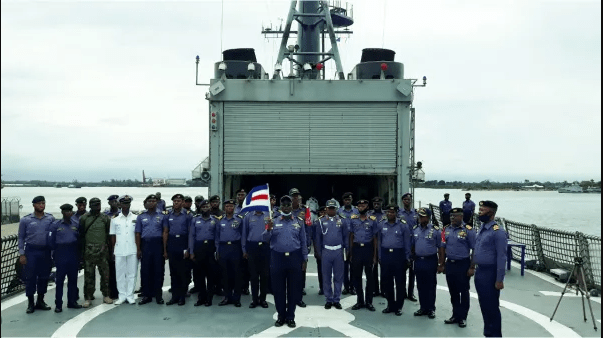The Nigerian Navy on Monday said eight ships, two helicopters, Maritime Domain Awareness facilities and elements of the NN Sea Boat Service (SBS) would participate in the “Exercise Benji Kekere” sea exercise in the Niger Delta region.
The Flag Officer Commanding (FOC) Eastern Naval Command, Rear Adm. Sanusi Ibrahim said this during the flag off ceremony of the Joint Eastern and Central Naval Command’s sea exercise in Port Harcourt, Rivers.
He added that the sea exercise would also include anti-piracy operations, protection of oil facilities and search and Rescue operations among others.
“The exercises’ nickname “Benji Kekere” means ‘Water Protection’ in Ijaw language and aptly captures the primary responsibility of the NN, which is to protect Nigeria’s maritime environment against all threats.
“The exercise involves a multi-faceted deployment of the two commands’ assets both at sea and in the backwaters, and is aimed at demonstrating our operational capability to secure our contiguous areas of responsibility.
“Our area of responsibility falls within the Niger Delta region in line with the Chief of Naval Staff (CNS) Awwal Gambo Strategic Directive 2021,” the FOC said.
Rear Adm. Ibrahim said that the sea exercise equally presents an opportunity to showcase Nigerian Navy’s commitment to the regional security arrangement in the Gulf of Guinea of which Nigeria is a major stakeholder.
“Nigeria’s maritime domain is dominant in the Gulf of Guinea with its enormous resources and remains strategic to our national security and development.
“We are also conscious that these resources have been persistently threatened by piracy, sea robbery, crude oil theft and illegal bunkering as well as Illegal unreported and unregulated fishing among other crimes.
“The Nigerian Navy and other security agencies have achieved landmark feats in curtailing these threats, the persistence of the perpetrators requires us to re-strategise in order to consistently deny them freedom of action,” he said.
